Interest Free Financing Up To 36 Months
WE DO NOT ONLY PUMP YOUR TANK - WE CLEAN IT!
Multiple Financing Options Are Available Up To 36 Months
Interest Free Financing Up To 36 Months
WE DO NOT ONLY PUMP YOUR TANK - WE CLEAN IT!
Multiple Financing Options Are Available Up To 36 Months
While the drain field is an essential component of any septic system, they often go ignored since they are out of sight and out of mind. However, maintenance of this critical piece of your septic system is an absolute must. At Septic Blue of Raleigh, we help property owners with our comprehensive septic services which include septic tank installation, septic tank pumping, septic tank repair, and drain field maintenance. Knowing how the drain field functions can make it easier for homeowners to know when to recognize problems. If you’re interested in learning more, read below for information that can help you take great care of your septic system.
At heart of every septic system is the drain field, also referred to as a leach field. Its function might seem simple – to handle wastewater that leaves your septic tank – but the underlying process is a scientific marvel, combining aspects of microbiology, soil science, and hydrology. Understanding how this system works is the first step to recognizing its importance.
We often undervalue the role soil plays in our ecosystem. However, in the context of a drain field, soil plays an essential role as a natural filter. As wastewater percolates through the layers of soil, many different impurities are removed. Clay and silt particles in the soil physically filter out suspended particles, while chemical reactions in the soil help to neutralize harmful substances. By the time the water reaches deeper layers of groundwater, it's become purified, showcasing the soil's impressive natural filtration abilities.
Microorganisms are vital players in a drain field's operation. Bacteria, fungi, and other microbes naturally present in the soil break down the organic matter in the wastewater. This process, called biodegradation, effectively reduces the waste content, making it less harmful. Having a thriving community of these beneficial microorganisms is necessary for the optimal functioning of your drain field.
Percolation and absorption are two pivotal processes in a drain field. The term 'soil percolation' refers to how water trickles down through the soil layers, while 'absorption' refers to the soil's capacity to hold and filter this water. The rate of percolation depends on the soil type and its composition. Sandy soils typically have higher percolation rates compared to clayey soils. The absorption process is crucial in purifying the wastewater, making these two processes the pillars of drain field functioning.
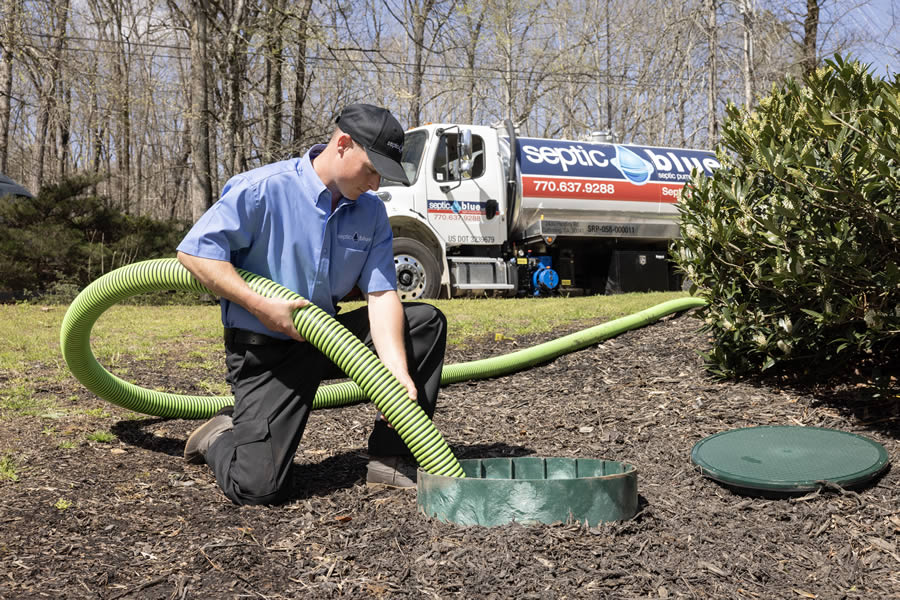
Septic tank pumping in Raleigh has never been so affordable and accessible thanks to the professionals at Septic Blue. We are…
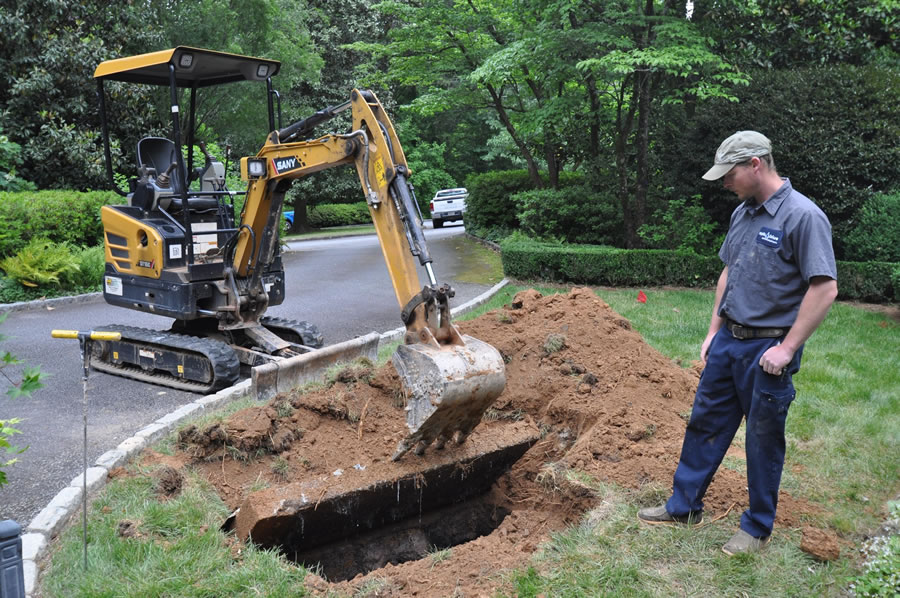
One quarter of Americans rely on septic tanks to process household waste. Most Septic Blue locations have septic tank experts who…
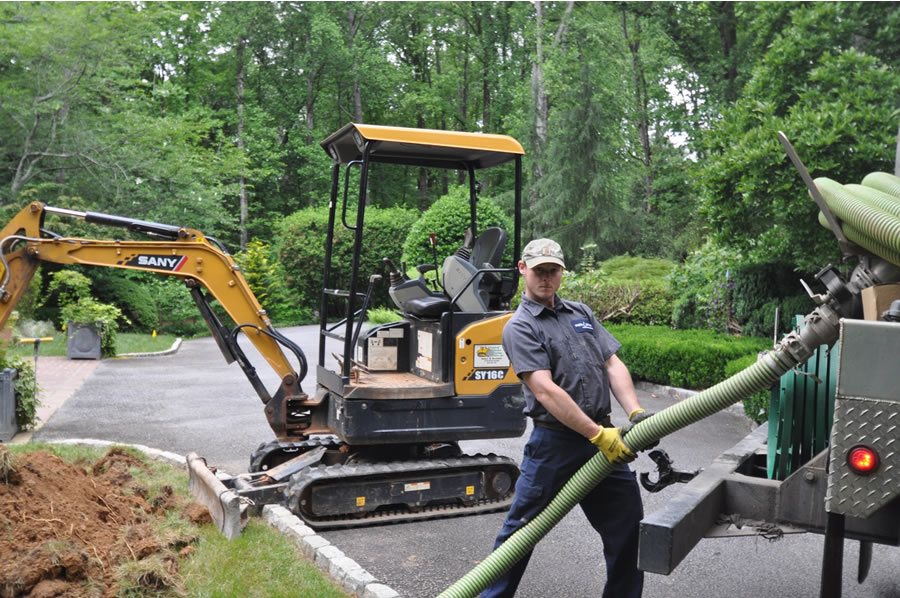
Call Septic Blue today for a second opinion. If you choose to go with Septic Blue, you'll receive $250 off your…

If you are a homeowner or resident in Raleigh that is among the 20 percent of households in the U.S. with…
Professional Saptic Plumbing solutions for every need. Contact Us Today!
While a well-designed and correctly installed drain field should last for many years, regular maintenance can prevent costly repairs down the line. Regular inspections, pumping the septic tank when needed, and being mindful of the substances entering the septic system are all important aspects of maintenance. Preservation efforts also extend to protecting the drain field area – avoiding heavy traffic, planting the right kind of vegetation, and not building structures on the drain field area are examples of good practices.
Awareness of potential drain field issues is key to preventing major problems. Some signs of trouble include slow drains, unpleasant odors, overly lush vegetation over the drain field, or pooling water on the surface. If you notice any of these symptoms, it's time to consult a septic company.
At Septic Blue of Raleigh, we have years of experience, technical know-how, and a deep appreciation for the science behind drain fields. Our team is ready to assist you, ensuring that your septic system functions optimally, lasts longer, and keeps the environment safe. To safeguard your septic system, reach out to us for regular maintenance checks, guidance on best practices, or to address potential issues before they escalate. Contact our office for more details about our services or to schedule a convenient appointment for your next septic tank installation, septic tank pumping service, or septic tank repair.
.webp)
Even if it often fades into the background of daily life, a septic system plays a critical role in keeping your…
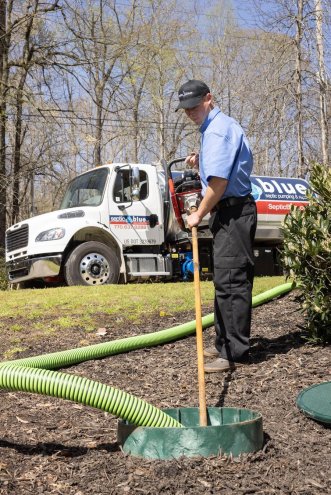
Septic systems play a critical role in protecting your home, health, and surrounding environment. Unfortunately, they're often misunderstood as systems that…
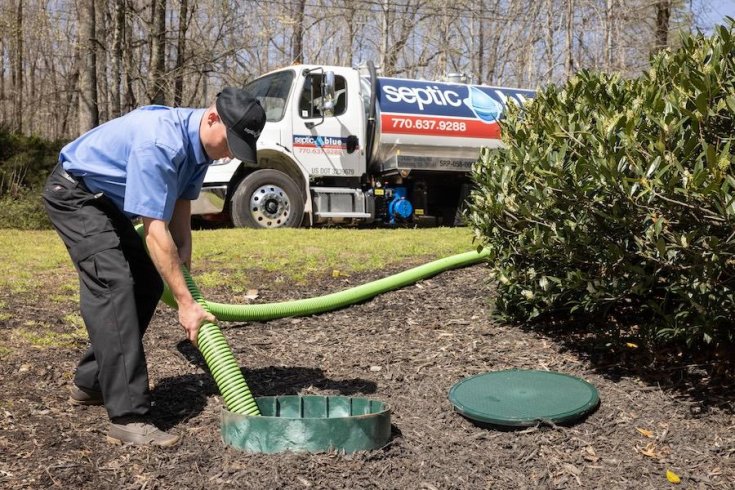
A well-maintained septic system supports daily life in ways that are easy to overlook, from dependable drainage to a healthy home…

Septic systems are an essential but often misunderstood part of a rental or owned property, and confusion about responsibility can quickly…